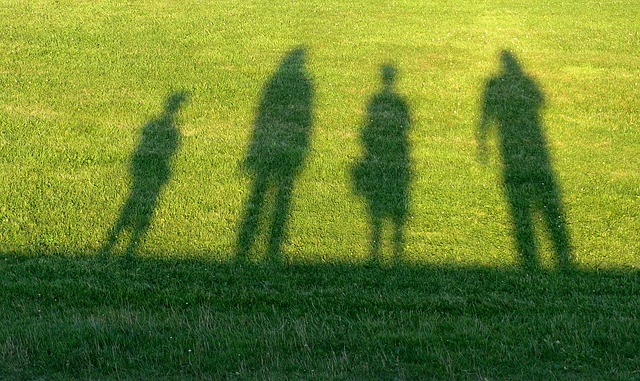Things Really Are Much Better Than They Used to Be

(Ron Knecht) – Many folks have had enough of the anger, condescension, dishonesty, hate, bitterness, aggression, etc. that are so plentiful these days. So, despite my inclination to answer so much of it (and it needs to be answered), I write today about some reasons to be grateful for the world we inhabit — and hopeful about the future.
Our family recently travelled back to the Midwest for the biennial coast-to-coast extended family reunion on my mother’s side. The fact that many folks can travel economically such long distances for brief stays is something to appreciate, because it wasn’t possible in the past and still isn’t in most parts of the world today.
Mom’s the oldest surviving member of the family, while our daughter Karyn’s the youngest of her generation of cousins. So Karyn has had a great opportunity to learn first-hand some real and important history others get only in passing in school.
Her grandmother, until she turned eight, was a barefoot, dust-bowl, depression era Kansas farm girl. My grandparents (Mom’s parents) did well as young farmers in the Kansas farm boom of the 1920s, but as the water table sank, their well went dry and they lost the farm.
Having been diligent and productive farmers and paid their loan to the end, the bank asked them to take over a farm that still had water but had been abandoned by folks who went to California. When the well at the second farm also went dry, the bank asked them to try once more.
When the third farm went dry too, as the water table continued downward, they gave up farming and moved into Wichita. From my grandfather’s funeral many years later, the salient thing I remember is he continued to deliver eggs to neighbors even when they couldn’t pay.
Mom vividly remembers that the only time she ever saw her parents cry was after they moved into town and the pastor came to tell them he had found Grandpa a job. They cried at the family table because they knew their seven (soon to be ten) children would not go hungry. Those were really hard times.
Karyn also has such a story on her mother’s side from the same period. Kathy’s dad’s family owned a restaurant (25-cent full meals!) and then a general store in Lily, South Dakota, population 33. As things went downhill for everyone, they had to accept barter from folks at the store because no one had cash.
Ultimately, they couldn’t make the last payment on the family car and lost it, while the store closed. They packed everything they could into their suitcases, including the family silverware, and boarded a train for the west coast. Eventually they landed in California, where Dad and his father worked in the Marin shipyards in World War II (and Dad caught asbestos fibers in his lung that killed him half a century later).
As I told Karyn when we watched Ken Burns’s documentary, The Dust Bowl, that was something of a family history for her. But both families worked hard and prospered after the war. Kathy and I have been more fortunate than most, and so today Karyn will be able to go to college wherever she can get in.
Not everyone has been so fortunate, but a very large percentage of the population lives much better today than their forebears.
For example, in the last century, the portion of the average family budget that goes for food has declined from 25 percent to less than 10 percent. And over half of today’s food dollar is spent eating out, with much greater selection than at home and no dish-washing. A couple of years ago Karyn ordered Australian lobster at an Elko restaurant in February – something completely unheard of when I was her age. (Yeah, I really said that.)
Clothes, furniture, tools and all kinds of material things are plentiful and inexpensive today. So, much of our spending now goes to services only the very wealthy could afford in previous decades.
Yes, economic growth has slowed, and we may not see such rapid progress going forward. But next time I’ll give some reasons to be hopeful and optimistic for the future.
Related Items


Facebook
Twitter
Pinterest
RSS